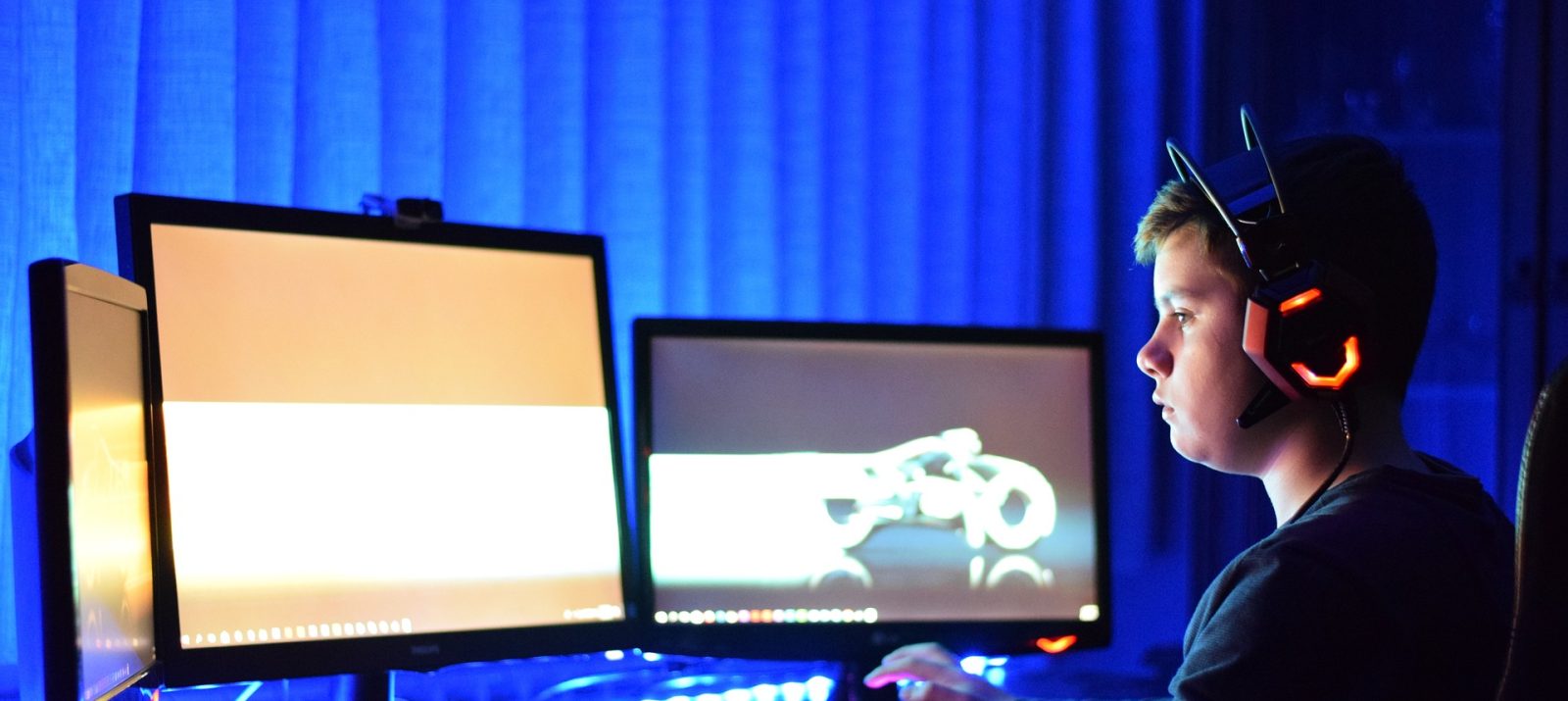
You come into the living room, your child is sitting in front of the game console. Excitedly it calls into the headset: “Ah crap, I’m knocked, one is Heaven, one Zig-Zag behind the Drywall and looted the Chest, watch out, the one above has a Purple Shotty and camped me!”1. You have heard what your child said – but what it means is a mystery to you?
It is not only different national languages, dialects and accents that shape the language of children and young people. The circles in which they move also affect the way they express themselves. People who game a lot often use a certain gaming vocabulary.
Most video games are played online and gaming language takes an important role in communication between players. It is often necessary to share information with others quickly and efficiently to improve collaboration and win the game. Here, the gaming language offers a good opportunity to communicate efficiently with others and develop a successful strategy.
Gaming language helps create identity and community. With their gaming slang, gamers show that they are part of a certain group. The common language also serves to establish and reinforce social norms and expectations within the gaming community. The Entertainment Software Self-Regulation Body (USK) has listed common terms in its lexicon.
Gaming language is influenced by youth and net cultures and is a very multifaceted phenomenon. With “Smash” and “Sus”, two terms from gaming were again among the top 10 youth words of the year in 2022. Gaming language is constantly changing: new words and expressions are introduced, while others slowly disappear or lose meaning. This is partly because the nature of the games changes over time. On the other hand, each game genre is characterized by its own words. In Fifa is called “GKs that are trash” (i.e., the goalie not playing well) and “Boah the bronze banked again” (i.e., he or she is deliberately manipulating his or her team’s score by sending players with poor scores to the bench and thus being paired by the system against players who tend to be weaker).In Fall Guys is about “proxy strats” (i.e. trying to win the game by intentionally falling back at the beginning of the round) or “jump dives” (i.e. combination of jumping and “throwing forward”).
Gaming language influences other areas of pop culture while also being shaped by pop culture. More and more often, expressions and terms from the gaming language are adopted in music, film and advertising. For example, rappers like Travis Scott and Drake use expressions like“loot” and “pogchamp” (an emote on the livestreaming platform “Twitch“) in their lyrics. Companies such as Coca-Cola and KFC use gaming terms and themes in their advertising campaigns, targeting a specific audience.
Keep in mind that your child’s speech will not be permanently altered or degraded by the use of gaming speech. Your child may speak to his or her friends in a way that is completely incomprehensible to outsiders. But that doesn’t mean it won’t find appropriate expression in school and, later, work contexts.
Nevertheless, it is important to take a closer look at the words together with your child, as defamatory or insulting expressions are often found in gaming language. For example, terms such as “huan” are used as shorthand for “son of a bitch” or “fag” as shorthand for “faggot,” the English equivalent of “faggot.” Children and adolescents often pick up such expressions thoughtlessly and use them themselves without thinking about it. Talk openly with your child about why the use of these words is problematic. Explain to him what the words even mean and make it clear that you will not tolerate such terms.
Such insults are to be distinguished from the phenomenon of trashtalk, which has established itself in gaming language as a form of etiquette in certain gaming groups. Show interest in your child’s hobby, watch them play and play a game together. This way, you can get an idea of the gaming culture yourself and talk to your child about games at eye level.
knocked: Lying on the ground, but not yet knocked out.
Heaven: A place name that refers to a point higher up.
Zig-Zag: A place name that refers to a Z-shaped wall.
Drywall: A wall that can be penetrated by projectiles.
looted: Engl. for plunder, here also: search.
Purple Shotty: A rare shotgun in the game Fortnite.
camped: Someone is sitting nearby waiting for team members to come to their aid.